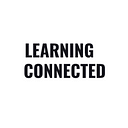Creating the First European Master’s in Educational Entrepreneurship
A discussion with Blair Stevenson (PhD., Oulu University of Applied Sciences)
Around four years ago, Oulu University of Applied Sciences (OAMK) established a pre-incubator programme called EduLAB. It was as a full-time edtech specific pre-incubator programme. The vast number of programme applicants revealed that there was a real demand for further qualifications in educational entrepreneurship, not only in Finland but also globally. Due to this feedback, OAMK decided to create Europe’s first Master’s degree programme in Education Entrepreneurship. The course was specifically developed for professionals who are interested in getting involved in the global edtech industry. So how did the course organisers go about designing the programme of study? They built the course content from scratch, agreed on key course components and benchmarked the programme of study against other existing programmes such as the University of Pennsylvania Graduate School of Education’s Master degree programme in Education Entrepreneurship. Why? Penn Graduate School of Education was the first university in the world to successfully launch a study programme of this kind. OAMK has since formed a partnership with Penn Graduate School of Education allowing for the exchange of knowledge and expertise.
What makes this study programme unique?
The course is structured as a one year blended executive programme and is delivered entirely in English. The Master’s degree programme isn’t delivered by OAMK’s Business or Education School. It is housed in its School of Media and Performing Arts. Blair believes this has many benefits. “ I feel business schools have a very particular vision about how to be an entrepreneur, so do faculties of education. Being in the School of Media and Performing Arts infuses our approach in design principles,” says Blair. The programme’s course content explores education, business management and finance, and service design. Sometimes you come across startups where the founder doesn’t have a strong grasp of pedagogy but has the necessary skills to manage or lead a business. Or it might be the other way around. This course develops the participants’ understanding of both pedagogy and company creation — whether or not they are an entrepreneur or intrepreneur. The course has a design-based learning approach. They find this supports collaboration and sharing throughout the different stages of the programme. The culminating experience of the programme is a thesis which often connects with the participants designing and launching their own educational product or service.
Blair has noticed both a national and international demand for the programme. “About half of the cohort are from Finland and the other half are from across Europe and around the world. It’s a very interesting mix,” he says. OAMK is a professionally-oriented university with strong industry links. The programme also provides participants with the opportunity to participate in some of the largest gatherings in edtech. Last year, they attended EdTechXEurope. OAMK celebrates the role it has played in transforming higher education and entrepreneurship for EdTech. Given that the first cohort is just finishing the programme, it is too early to evaluate its impact. It is clear that the course has been designed to prepare participants in a different way to traditional programmes. So it is expected that they are developing a different type of learner — individuals with a strong knowledge in effective pedagogy with the ability to lead innovative edtech startups.
Find out more about the programme here
